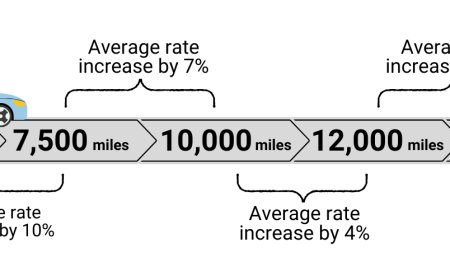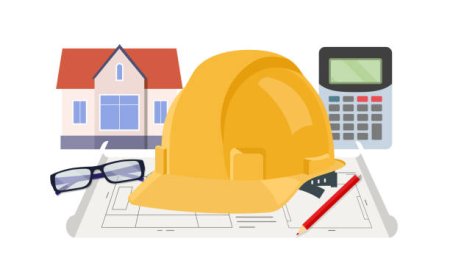Beyond the Boardroom The Power of Strategic Planning Facilitation
I could use this space to tell you about my being a proven executive, business owner, CEO and all that other blah, blah, blah but what I really want to tell you is how much I love coaching.

Strategic planning. The very phrase can conjure images of endless meetings, mountains of data, and perhaps a faint sense of dread. Yet, in today’s rapidly evolving landscape, effective strategic planning isn's just a good idea – it's a non-negotiable for organizations aiming to thrive, not just survive. But what if there was a way to transform this often-arduous process into an engaging, productive, and even inspiring journey? Enter strategic planning facilitation.
Far from being a mere note-taker or timekeeper, a skilled strategic planning facilitator is the architect of a productive planning environment. They are the catalyst that transforms disparate ideas into cohesive strategies, individual perspectives into shared vision, and potential pitfalls into opportunities for growth.
Why Facilitation is the Game-Changer
Think about a typical strategic planning session without a dedicated facilitator. What often happens? Stronger personalities dominate the conversation, quieter voices are unheard, discussions veer off-topic, and ultimately, the "plan" that emerges might lack true buy-in or comprehensive insight.
This is precisely where facilitation makes a profound difference. A facilitator brings objectivity and a structured approach, ensuring:
-
Equal Voice and Engagement: A good facilitator actively encourages participation from every individual, regardless of their position or communication style. They create a safe space for open dialogue, where diverse viewpoints are not just tolerated but actively sought out and respected. This leads to richer insights and more robust strategies.
-
Focus and Efficiency: Ever been in a meeting that felt like it was going in circles? Facilitators are masters of keeping discussions on track, guiding the group through each stage of the planning process with purpose. They manage time effectively, synthesize information, and gently redirect conversations when they stray, ensuring every minute is productive.
-
Clarity and Consensus: Strategic planning is often about grappling with complex issues and making tough choices. A facilitator helps the group articulate challenges clearly, define goals precisely, and explore various solutions systematically. They employ techniques to build consensus, ensuring that the final strategic plan is not just a document, but a shared commitment.
-
Neutrality and Objectivity: Internal team members, no matter how well-intentioned, often come to the planning table with pre-existing biases, departmental agendas, or personal relationships that can unconsciously influence decisions. An external facilitator, on the other hand, provides a neutral perspective. They are not invested in any particular outcome other than the success of the planning process itself, allowing them to challenge assumptions and ask difficult but necessary questions without fear or favor.
-
Conflict Resolution and Dynamics Management: Disagreements are inevitable in any meaningful strategic discussion. A skilled facilitator doesn't shy away from conflict but rather sees it as an opportunity for deeper understanding. They possess the tools and techniques to manage disagreements constructively, turning potential roadblocks into stepping stones for innovation and better solutions.
-
Strategic Thinking and Future Orientation: Beyond the day-to-day operations, strategic planning demands a forward-looking mindset. A facilitator uses various frameworks and exercises to stimulate strategic thinking, encouraging participants to envision future possibilities, identify emerging trends, and anticipate challenges, rather than simply reacting to the present.
The Facilitator's Toolkit: More Than Just Soft Skills
While excellent communication and interpersonal skills are fundamental, a professional strategic planning facilitator employs a diverse toolkit of methodologies and approaches. This can include:
-
SWOT Analysis and PESTLE Analysis: Guiding the group through structured environmental scans.
-
Scenario Planning: Helping organizations anticipate and prepare for different future states.
-
Visioning Exercises: Facilitating the creation of a compelling long-term vision.
-
Goal Setting Frameworks (e.g., SMART goals): Ensuring objectives are clear, measurable, and achievable.
-
Decision-Making Models: Providing structured approaches for making critical choices.
-
Brainstorming and Ideation Techniques: Unleashing creativity and generating a multitude of solutions.
Investing in Success
For any organization embarking on the crucial journey of strategic planning, investing in professional facilitation isn't an expense; it's an investment in the quality, effectiveness, and ultimate success of their future direction. It transforms a potentially overwhelming task into a streamlined, engaging, and ultimately empowering process.
By bringing in a skilled facilitator, organizations can unlock the collective intelligence of their teams, foster true alignment, and develop a strategic plan that is not only ambitious and well-defined but also genuinely embraced and actionable by everyone involved. In an era of constant change, the ability to strategically plan with clarity and conviction is a superpower, and facilitation is the key to wielding it effectively.


































